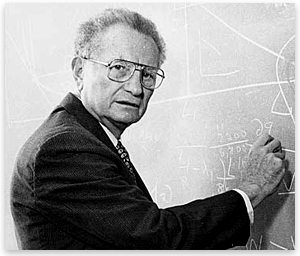How the Existence of One Store Disproves Capitalism
This is pretty staggering news:
According to experts, the Connecticut-based franchise, which arranges skewered pieces of fruit into displays vaguely resembling floral bouquets, has defied all modern economic models, expanding continuously for the past decade despite its complete lack of any discernible consumer appeal.
“In theory, the market should have done away with Edible Arrangements long ago,” said American Economic Association president Orley Ashenfelter, who added that one of the crucial assumptions of capitalism is the idea that businesses producing undesired goods or services will fail. “That’s how it’s supposed to work. Yet somehow, despite offering no product of any worth whatsoever, this company not only makes payroll every week, but also generates strong profits.”
[…]
Upon examining the so-called Edible Arrangements paradox, economists worldwide have abandoned many of the ideas that have dominated economic thought since the time of Adam Smith, arguing that the forces of supply and demand are powerless to explain the company’s 45-piece line of officially licensed NASCAR-themed fruit bouquets.
“To understand this enigma, we must discard the naïve notion that free-market prices reflect what consumers are willing to pay,” Nobel laureate Joseph Stiglitz said. “Otherwise, how else are we to rationalize the phenomenon of a human being willingly spending 84 bucks on 18 green apple wedges and a Mylar balloon?”
An unofficial survey conducted by Stiglitz found that not one of the AEA’s 18,000 members had ever purchased or received an Edible Arrangement or knew of anyone who had, indicating that the franchise was operating in “some advanced realm of economics” in which the so-called profit motive no longer applied.
I look forward to seeing how this paradox is resolved.






You fail at sources.
Please note the tags on the post.
With all due respect to Professor Stiglitz, he is neglecting the phenomenon of conspicuous consumption among the leisure class and those who aspire to inclusion. In conspicuous consumption, one of the stated goals is to make purchases far beyond the pecunary value ot the item in question. The less functional the purchase, the more conspicuous consumption value. What could possibly be less functional than spending 84 bucks of 18 pieces of green apple and a mylar balloon?
Problem solved! The market can rest easy.
As often the case, The Onion nails it. Another “enigma” of this kind would be why dreadful reality TV, which no rational human being should be able to stand, is so successful.
This is hilarious! Because it seems very true to me, and I actually bought an Edible Arrangement for my boyfriend’s graduation a couple of years ago. He loves fresh fruit, and I thought it was novel to get him a bouquet of fruit instead of flowers.
He was not as impressed as I thought he would be with the uniqueness, and quickly suggested we tear down the arrangement, since we had to store the fruit in the refrigerator. He was right.
There may be an alternative solution: hidden movement of money, aka money laundering! Like the myriad shoe stores in Georgetown with no customers, but high rents, they exist not for their apparent function, but to disguise the movement of large sums of cash.
Robert in SF, you add a new wrinkle to the enigma. We must now figure out how your purchase, the only one ever documented, is fueling the entire enterprise.
Somebody’s getting a Nobel out of this…
so basically the short version is “I think buying editable fruit is useless so therefore the market must not be working.” Just because you or Stiglitz don’t see value in it doesn’t mean the people buying it don’t. People’s taste prefferences differ. This kind of thought reeks of a self centric arrogance.
*editable fruit flowers
First they surveyed the AEA members with the wrong question. The question should have been, have you every seen one of these arrangements at your high-priced conferences?
Reality TV is simple to explain. It mesmerizes people even clicking by making them more receptive to the advertisement. If you want to get rid of reality tv, you need to work to make it legal to deploy rapid response billboards to traffic accidents and train wrecks.
Right, because we all understand that sending $84 bunches of fruit is a waste but sending $84 of dying plants (flowers) is obviously superior. I LIKE Edible Arrangements, and am therefore humorless here, despite the tag.
A couple of misses in your explanations,
– It’s art.
– (Novelty) It’s want people want to give, not what they want to get. There’s a reason Dad’s get ties on father’s day even though they don’t wear them.
– It’s a cover for a booming drug trade.
– Genius is 1percent inspiration and 9 percent perspiration and 90 percent marketing.
– It’s a euphemism for something in San Francisco.
– It’s a euphemism for everything in San Francisco.
I think there’s a Letterman top ten in here somewhere.
(OK I, make a couple of those up.)